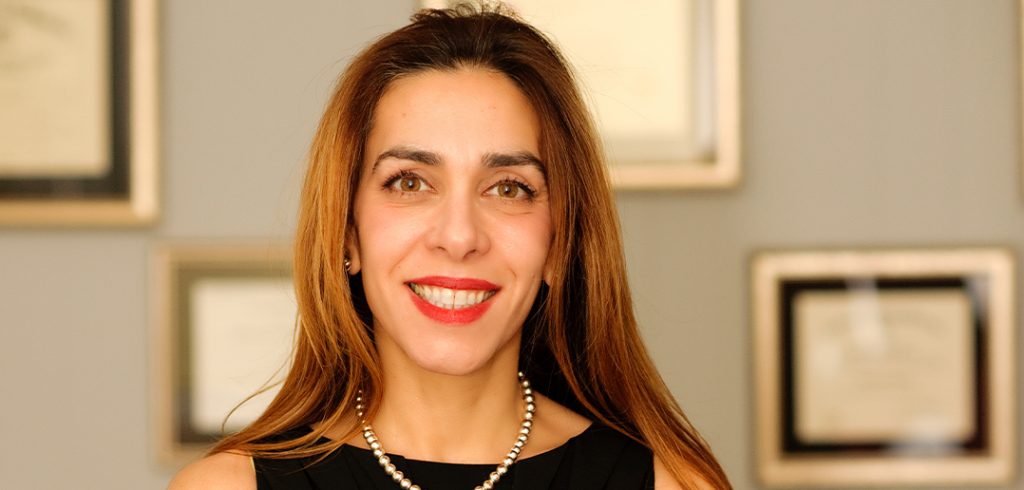Mentorship During a Move
During the course of her doctoral studies, she met and married her husband, who was an active-duty member of the U.S. Navy, and they had a child. Soon after, he got stationed in Italy, and the family moved there. With help from McKay, she was able to complete her dissertation while thousands of miles away from campus.
“This was the nineties, so the internet was not what it is now,” Rafanello says, noting that McKay and the GSAS administration were incredibly supportive as she dealt with the difficulties of transcontinental scholarship. “Trying to get articles wasn’t easy like it is today, but I persevered.”
Helping Police Departments Hire More Equitably
Today, Rafanello works with adolescents and adults at her private practice in Morristown, New Jersey. She also works for several New Jersey police departments, evaluating job applicants for psychological fitness, while helping departments create interview and evaluation practices that are equitable for all applicants, regardless of their background.
“I think right now, we have a great opportunity to look at how we select police, and when they are police, how we take care of them,” she says.
She also says that a lack of adequate funding for social programs and agencies that support mental health, like New Jersey’s Division of Youth and Family Services, puts more pressure on police officers. “When people [who need mental health support]fall through the cracks, the police have to come in, and they’re not trained to do that.”
Providing Treatment, and Finding Hope
On the treatment side, Rafanello provides individual and group DBT (dialectical behavior therapy) treatment and works with many young people who are experiencing additional stress, anxiety, and depression because of COVID-19. Like many psychologists, she has had to move her sessions from in-person to Zoom.
“DBT’s about mindfulness, interpersonal effectiveness, emotional regulation, distress tolerance, all the things that everybody needs,” she says. “By keeping those roots going and teaching those skillsets and offering the phone coaching, we’re able to get them to use those skills, even during a pandemic and even in-between sessions.”
Rafanello says that millennials and members of Generation Z are more willing to confront mental health issues than those who came before them. She is very clear, however, that they are not overly sensitive.
“Everybody calls them ‘snowflakes,’” she says of the young people she sees. “These are the Black Lives Matter people, these are the Parkland shooting [activists]. They’re the ones that are dealing with the pandemic and going to school and making it all work. They are not snowflakes at all. I’m hopeful about the next generation of leaders, and I’m confident that Fordham is going to educate them.”
‘A Richness of Opportunity’
Rafanello says that her own education at GSAS was instrumental in her success as a psychologist.
“I was exposed to some of the brightest minds in psychology at the time,” she says of her GSAS professors. She also specifically highlights valuable experiences like landing a part-time job at Montefiore Medical Center and taking a developmental psychology class in which staff from Sesame Street visited to talk about the ways the show developed content to keep children emotionally and mentally engaged.
“[There are] so many great training opportunities and research opportunities. There’s just a richness of opportunity that extends beyond the campus because New York [itself]really is an important campus.”

